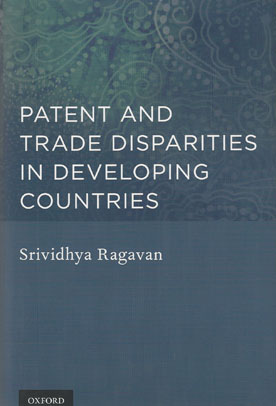
For developing countries, the concept of sustainable development, as opposed to rapid pockets of development, embodies great promise for socio-political reasons. Most analyses of development, however, have focused on either trade mechanisms or intellectual-property regimes, which has resulted in overly narrow and sometimes paradoxical conclusions, with corresponding policy measures that have promised far more than they can deliver.
While each of these mechanisms has benefits and disadvantages, questions about how they would interact and what kind of results they produce remain largely unexplored. Similarly, almost all of these regimes provide generalized solutions that developing countries tend to denounce as ill-fitting. There are several flexibilities that can be used as effective tools, but knowing which flexibility applies best to what context remains contentious.
In Patent and Trade Disparities in Developing Countries, Srividhya Ragavan examines the interaction between trade and intellectual property regimes (using the patent regime in India as the focal point) in an integrated developmental framework to determine whether and how sustainable economic growth can be achieved in developing countries.
This book examines a number of important questions: Is compulsory licensing the best way to provide access to medication or is patent protection more efficient? Should innovation in plant breeding be protected at all? If so, should it be using patents or a sui generis mechanism?